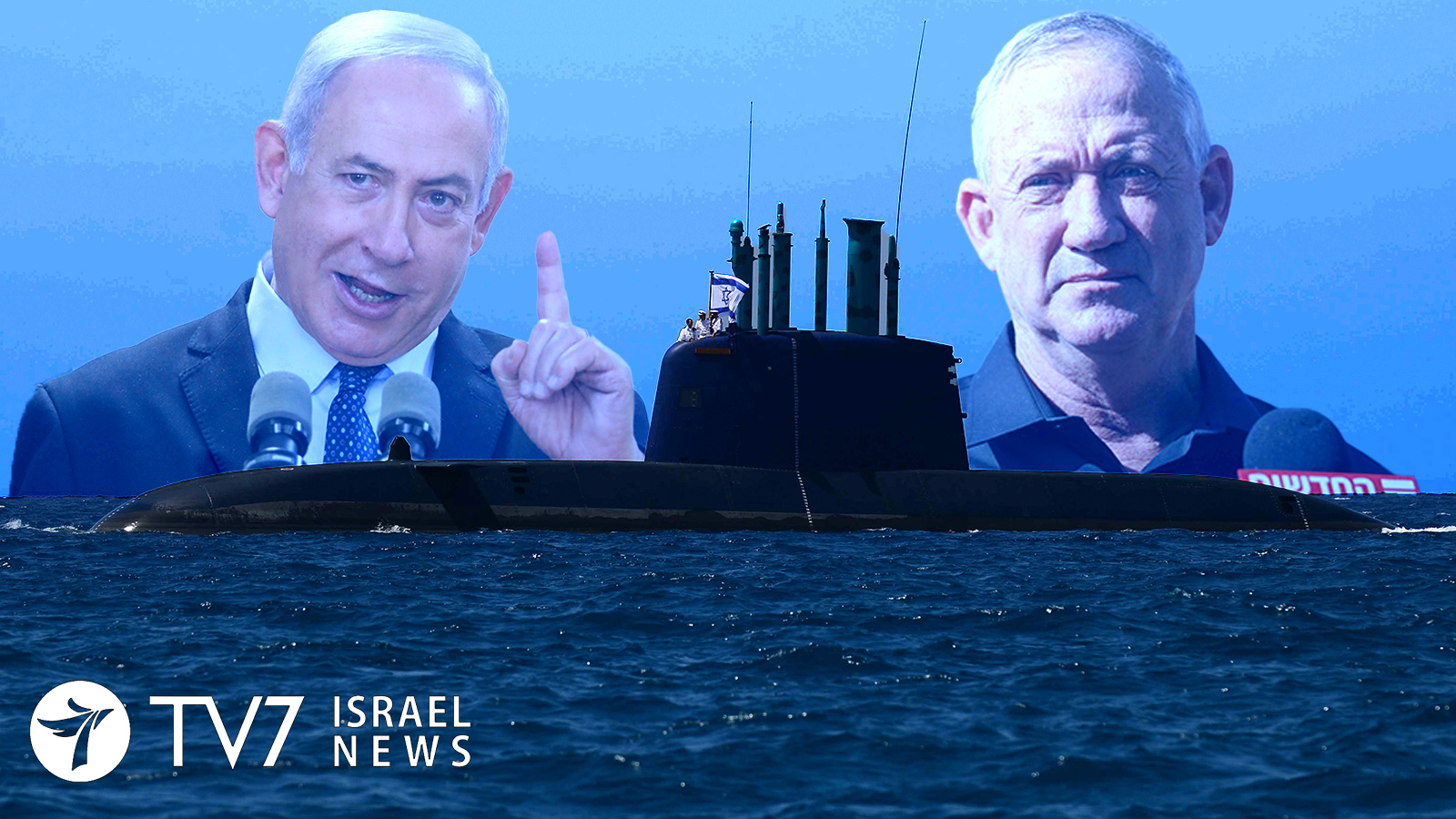Israeli Alternate Premier and Defense Minister Benny Gantz has convened a ministerial inquiry into the so-called “Submarine Affair.”
Case 3000, as it is known officially, involves allegations that several civilian and military officials accepted bribes to advance the multi-billion dollar purchase of 3 Dolphin-class submarines and 4 Sa’ar 6-class corvette naval vessels from Germany’s ThyssenKrupp AG conglomerate.
The deal was negotiated in 2016 under the administration of Israeli Prime Minister Benjamin Netanyahu, who has himself been cleared of wrongdoing. The Premier does, however, face an upcoming trial for bribery, fraud and breach of trust, known respectively as Cases 4000, 2000 and 1000.
“In light of these consultations and current information to which he is privy, Gantz has come to the conclusion that a formal inquiry by a Defense Ministry commission will be able to shed light on some of the processes that led to the procurement of submarines and patrol boats, looking at the procedures and contracting execution,” read an official statement from his office.
Attorney General Avichai Mandelblit announced that he will issue directives to the newly-formed commission so that it will not interfere with any indictments related to prosecution of the case.
Criminal charges including conflict of interest, bribery or other corruption offenses are pending against several navy officials and former top aides to Prime Minister Netanyahu, including his cousin and personal lawyer David Shimron, who represented the German company in Israel. The Premier’s former Chief of Staff David Sharan and former Deputy National Security Advisor Avriel Bar-Yosef are also under suspicion.
The commission of inquiry is headed by Former Tel Aviv District Court Judge Amnon Strashnov, who also served as IDF Chief Military Counsel. Other panel members include former Naval Commander Avraham Ben Shushan and former Defense Ministry Acquisitions Director Yael Grill.
The findings of the investigation, said the Defense Minister, will be publicly released within four months.
Gantz, leader of the centrist Blue and White party, reached agreement with rightwing Likud Head Netanyahu to form a national unity government 20 April 2020. The two leaders have sparred over policy, including approval of a national budget.
Several Netanyahu party loyalists were quick to condemn the Gantz investigation of Case 3000. Minister of Public Security Minister Amir Ohana threatened to launch another ministerial committee to investigate the Defense Minister’s involvement in the bankruptcy of his former cybersecurity firm “The Fifth Dimension,” even though Gantz was previously cleared of wrongdoing by the Attorney General.
Coalition Chairman and Likud Member of Knesset Miki Zohar insisted Gantz “knows well that Netanyahu had nothing to do with the submarine story” but is nevertheless “acting to besmirch him while endangering the coalition.” Not only is the probe “a provocation against Likud and its leader,” accused Zohar, but “yet more proof that Gantz is dragging Israel to elections during a global crisis.”
The Defense Minister later indirectly addressed most of those criticisms while speaking to a meeting of his faction at the Knesset.
“Everyone’s talking about elections. I’d like to say that I think that the State of Israel needs a functioning government, supported by a state budget and a spirit of cooperation,” he said.
After stating that he is “not afraid of elections,” Gantz went on to say, “I just don’t think that they’re what the country needs at this time, and I will keep doing everything I can for this government. Not by compromising on my principles, not by compromising on what this country’s priorities should be, not by putting my own needs before the needs of this country.”
With regard to Case 3000, he reaffirmed that, “after reconsidering the Submarine Affair and looking at the courses of action available to me – I’ve decided to launch a governmental commission of inquiry to look into how those patrol boats and submarines were procured.”
He then vowed, “Over the coming period, we will continue working, with both our metaphorical olive branch and sword. We will keep pushing for a state budget and a functioning government, peacefully. But we will also use that metaphorical sword if it proves necessary and insist that we get back on track to working for the people, and only for the people.”
